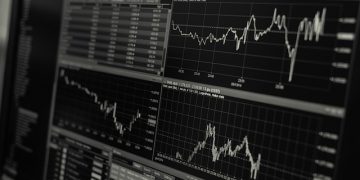Peripatetic investor Mark Mobius, 84, sees a strong global economic recovery that should finally help emerging markets outperform after a decade lagging behind developed markets, and despite U.S. tensions with China.
Mobius, once described as the Indiana Jones of emerging markets, launched Mobius Capital Partners almost three years ago after retiring from a multidecade career at
Franklin Templeton,
where he ran one of the first emerging market funds. His new firm, which oversees $220 million in assets, takes a more concentrated approach to the frontier and emerging markets he has long invested in, focusing on roughly 30 companies and actively working to improve environmental, social, and corporate governance, or ESG, factors, and culture.
Barron’s caught up with Mobius in Dubai to see how he’s positioned for a global economic recovery, why he isn’t worried about a U.S.-China decoupling, and why he thinks central bankers’ fixation with inflation is misguided. An edited version of our conversation follows.
Barron’s: Emerging markets have lagged behind the S&P 500 index for about a decade. Why is this their year to outperform?
Mark Mobius: We’ve had a big run [in emerging market stocks], and this will continue. With the average age [of people] in these countries lower than that of the developed markets, their recovery [from Covid-19] will be faster. The vaccine, of course, helps, but more important is the psychology. As people begin to feel safe, you’ll see economic activity pick up very fast.
Technology is also hitting these markets, especially frontier markets, and that’s driving a lot of this move toward better asset quality and information. The currency is also getting stronger in emerging markets against the dollar, which itself is a positive. But more importantly, the psychology of a currency revaluation is very powerful for investors. The first question that [emerging market] investors often ask is if they will lose money on the currency.
India is the biggest country weighting in your portfolio. Why?
India just announced its budget and a number of dramatic changes that are going to have a big impact driving economic growth there—including opening up the insurance market to foreign investors and increasing privatization of state-owned enterprises. It’s a great story. We own
APL Apollo Tubes
[ticker: APAT.India], which makes steel pipes and [should benefit from] spending on infrastructure. We also own
Persistent Systems
[PSYS.India], a software company that does a lot of work with companies like
IBM,
and
Metropolis Healthcare
[METROHL.India], which does medical testing.
Latin America has been out of the spotlight. What are the opportunities there?
Brazil is the place we are focusing [on]. We own retailer
Lojas Americanas
[LAME4.Brazil], which has [an online retail] partner
B2W Digital
[BTOW3.Brazil] that is the equivalent of
Amazon.com
[AMZN]; a software company,
Totvs
[TOTS3.Brazil], and [medical diagnostics company]
Fleury
[FLRY3.Brasil]. With lockdowns, distance diagnosis is coming to the fore. Once these testing companies have your records, they can recommend hospitals, doctors, medicines. It’s a matter of data collection, which is very important.
Chinese stocks have had some of the biggest gains recently, but there are regulatory questions—Beijing scuttling the Ant Financial initial public offering, and new antimonopoly measures. What’s the risk?
The Chinese government realized you couldn’t have these internet companies taking over the financial system, which they were well on their way to doing. It’s why I believe they stopped the IPO. The government also was worried that retail investors might get burned because they were also planning to regulate these fintech companies. China’s not alone. The U.S. is looking at [regulation]; Europe is looking, too.
What do you think about recent efforts by the U.S. to restrict China’s access to technology?
The U.S. made a mistake restricting the transfer of technology. Now, if I were sitting in Beijing, I would say, “
Taiwan Semiconductor Manufacturing
[TSM] is the biggest [chip company] in the world, and even though we consider it our province, we can’t control that.
Samsung Electronics
[005930.Korea] is next; it’s in Korea. The U.S. is next, with
Intel
[INTC].” What you’re going to get—particularly now with big semiconductor shortages—is the Chinese working overtime to produce their own chips.
That’s going to take a while.
No question. TSM is basically a foundry. They do the physical production, but hundreds of little fabless Taiwanese companies create all the software that’s necessary to go into these chips. We own several: Taiwan’s
eMemory Technology
[3529.Taiwan],
WIN Semiconductors
[3105.Taiwan], and
Parade Technologies
[4966.Taiwan]. Return on capital employed is very good because all they need are offices and a computer.
What about the risk to Taiwan as U.S.-China tensions flare?
It’s a risk we have to accept. These fabless companies have strong ties with
Apple
[AAPL] and
Microsoft
[MSFT] and usually have some base in Silicon Valley to service them so they can still operate without being in Taiwan.
What do you like in China?
We have
Yum China Holdings
[YUMC]. They have done a [good] job in improving the way they operate. We also own
AK Medical Holdings
[1789.Hong Kong]. There’s a lot to be done in [developing the healthcare system].
Are you worried about the U.S. and China decoupling?
I don’t think it’s going to happen. The government can say one thing, but the companies can say another. They don’t have to be in the U.S.; a lot are setting up in Dubai or the Cayman Islands.
Should investors be worried about the recent push to delist Chinese companies that don’t comply with U.S. auditing oversight?
It would be very easy for [Chinese companies] to meet the accounting standards. It’s a matter of pride [for the Chinese government] to refuse to allow these companies [to open their audit books]. And look at the turnover of these companies on the New York Stock Exchange! Do you think the brokers are going to allow these turnover conditions to go away? I doubt it. It takes two to tango: U.S. authorities will probably let up, and the Chinese will adjust their accounting over time.
There’s also increasing scrutiny of China’s human-rights issues, such as in Xinjiang and Hong Kong. How does your ESG approach allow for China investments?
We don’t look at the macro level in that sense. We know Xinjiang is a problem. We know human rights generally are a problem. A lot of people would say you’ve got to do something about human rights and change society. If we tried to do that, think of how many real democracies there are in the world today, particularly in emerging markets. It’s very difficult.
We look at the individual company to determine how they’re doing on measures of ESG, and culture. It’s amazing, over the years since I began investing in China, the improvements we’ve seen. The government has begun to impose certain ESG standards on these companies, which is a sign policies are moving in that direction.

Photograph by Natalie Naccache
In your latest book, The Inflation Myth and the Wonderful World of Deflation, you suggest that the recent worries about inflation are misguided. Why?
I wanted to denigrate the whole emphasis on inflation numbers. You hear the Federal Reserve saying, “Inflation has gone up by a half-percent; we’ve got to do something,” or economists saying, “You have to have at least 2% inflation, otherwise it’s no good for the economy.” This is all insane. Inflation numbers are based on a basket that’s changing every year. If you go back 10 years, the basket’s completely different and the quality of products has changed dramatically. Because of technology, we’re getting a deflationary trend where things are getting cheaper—and that’s accelerating in the emerging countries. This measure is not a very good way to make policy.
How should we measure inflation?
You should look at wages and income and measure the quality of life. As an old timer, the quality of my life has gotten a lot better: I can write an email, or the computer can access all this information—that didn’t exist when I was getting my Ph.D. at MIT. Prices are going up, but the reason is currency devaluation. Through history, there’s absolutely no currency in the world that has maintained its value.
What does that mean for the dollar’s status as the reserve currency?
The dollar peaked last March, and now it’s way down to 2018 levels. You’re seeing a number of things here. First, don’t underestimate cryptocurrencies. When you think of all the people who don’t want their wealth to be revealed, they’re using cryptocurrencies.
No. 2: The dollar is still the largest investment currency, but the euro is the largest trade currency. A lot of that has to do with zero interest rates, which make trade financing [in the euro] very attractive. And then you’re seeing the yuan coming up. China has already concluded currency swaps with a number of countries.
You’re going to find a general retreat from the U.S. dollar—not today or tomorrow. It’s a slow process. The most critical aspect for the dollar is the degree to which it can be used and traded around the world; that’s very important to people. One of the reasons it’s difficult for the Chinese to have a reserve currency is because they want to control it so much, but it’s remarkable that it has appreciated about 10% against the dollar since the middle of the last year. It shows the demand.
Write to Reshma Kapadia at [email protected]




